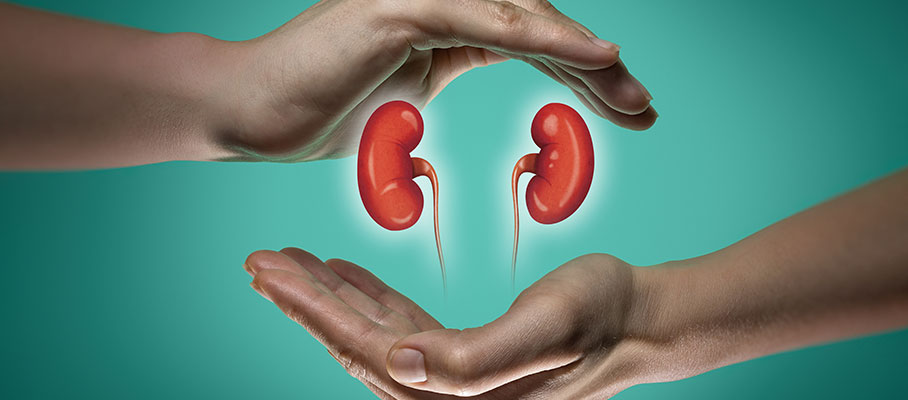2) This #accredited #tweetorial series on #kidneydisease #CKD is supported by an independent educational grant from the Boehringer Ingelheim/Lilly Alliance. It is not intended for US- or UK-based HCPs. Accreditation statement & faculty disclosures at https://t.co/PHlIpplEO4.
— @CKD_ce (@ckd_ce) January 3, 2023
4) Today we are specifically going to look at the evidence for a multi-disciplinary approach to protection of the patient with #diabetes and #CKD (G1A1-G2A3), but first a quiz! pic.twitter.com/zatOYGwZeJ
— @CKD_ce (@ckd_ce) January 3, 2023
6) Doing studies in pts with an #eGFR > 60 is difficult. It might take decades to get the number of events to prove benefit in renal/cardiac/mortality endpoints. Some recommendations are therefore extrapolated from studies of more severe CKD, with an eye on risks/benefits. pic.twitter.com/iuboQAyi9V
— @CKD_ce (@ckd_ce) January 3, 2023
8) For the 1st half of this tweetorial we are going to focus on lifestyle and monitoring of patients with #diabetes and early CKD (G1-2). In the 2nd half we will examine the benefits of specific medication classes. pic.twitter.com/RX16la8fCs
— @CKD_ce (@ckd_ce) January 3, 2023
10) Physical Activity
— @CKD_ce (@ckd_ce) January 3, 2023
Rec light-moderate intensity as tolerated.
Few studies in #DM & #CKD, rec's derived from general pop studies.
Meta-analysis of #RCTs in #nondialysis CKD actually showed no effect on kidney function, but time & intensity may matter.
🔓https://t.co/BDusRE5LKt pic.twitter.com/GVLE0HDpQh
12a) Protein Intake@goKDIGO: 0.8 g/kg/d in adults regardless of #eGFR (not on #dialysis).@NKF #KDOQI: 0.6-0.8 g/kg/d in CKD 3-5 with #diabetes.
— @CKD_ce (@ckd_ce) January 3, 2023
13) Weight Loss/ Bariatric Surgery
— @CKD_ce (@ckd_ce) January 3, 2023
In observational studies, ↑ BMI is associated with a higher risk of #HTN and #DM, and a modest risk factor for #CKD.
Propensity matched study of 985 pts showed long-term GFR decline attenuated by bariatric surgery: 🔓https://t.co/qKZlaxF4t8 pic.twitter.com/vMF19li0wd
15) Glycemic Target
— @CKD_ce (@ckd_ce) January 3, 2023
HbA1c goals should be individualized, esp in elderly.
Intensive glucose control is associated with ↑ CV mortality in advanced #CKD.@goKDIGO recommends lower #HbA1C goals in healthy pts with CKD 1-2 & w/low risk of hypoglycemia & good educational support. pic.twitter.com/t5fevKBP7K
17a) BP Control
— @CKD_ce (@ckd_ce) January 3, 2023
↓ BP did not prevent worse kidney outcomes in #SPRINT (pts w/o DM). ↓ BP was associated with ↓ all cause mortality (A).
18) BP control
— @CKD_ce (@ckd_ce) January 3, 2023
Because pts w/#DM, & especially w/#proteinuria > 1 gram/d, are at risk for accelerated ↓ in eGFR, a BP goal of <130/80 is recommended.
Although control of moderately elevated BP has not been linked to improved #CKD, #BP control is still important in #CV outcomes.
20) That’s all for part 1. Be sure to come back TOMORROW for part 2 and our discussion of medication use in #diabetes with #CKD G1-2.
— @CKD_ce (@ckd_ce) January 3, 2023
22) So let’s pick up where we left off. which medications are considered first-line therapy in #diabetes with #CKD 1-2?
— @CKD_ce (@ckd_ce) January 4, 2023
a. ACEi/ARB
b. MRAs
c. Metformin/SGLT2i
d. GLP1RA/sulfonylureas
23b) Interesting #RCT compared with placebo show the evidence behind this recommendation is only “moderate” in terms of mortality and doubling of SCr.
— @CKD_ce (@ckd_ce) January 4, 2023
See 🔓https://t.co/QI1urkPJYh pic.twitter.com/ExR1zDB5hJ
24b) @goKDIGO/@ @AmDiabetesAssn discourage #RASi in normoalbuminuric, normotensive patients with diabetes. The answer to the ? in tweet 22 is C. pic.twitter.com/HQaZ7bVglg
— @CKD_ce (@ckd_ce) January 4, 2023
26a) RAS Blockade#MRAs are used in resistant #HTN & are shown to ↓ #proteinuria in CKD 1-4 in pts on ACEi/ARB.
— @CKD_ce (@ckd_ce) January 4, 2023
Lack of long-term trials demonstrating cardiac/renal outcomes.
27) #Metformin
— @CKD_ce (@ckd_ce) January 4, 2023
Low cost, safe and has CV & CKD progression benefits.
Use may also be associated with weight loss.
No risk of #hypoglycemia as a single agent.
Can be considered as first-line therapy, minimal risk of lactic acidosis and no dosage adjustment needed CKD 1-2. pic.twitter.com/sLxw7pHTAv
29) SGLT2 Inhibitor
— @CKD_ce (@ckd_ce) January 4, 2023
EMPA-KIDNEY: showed benefits in patients with eGFR < 90 ml/min, tho less so in the group w/ < 300 mg/g proteinuria at 2-years.
May be appropriate first-line for CKD 1-2 w/ #UACR > 1000 mg/g & high risk of rapid declining eGFR.
See 🔓https://t.co/giaP2yFpxJ pic.twitter.com/MOyhYhD4pR
31) GLP1 Receptor Agonist #GLP1_RA
— @CKD_ce (@ckd_ce) January 4, 2023
Use if glucose above goal on metformin & SGLT2i
CV benefits, but not a universal class effect.
No proven preservation of eGFR except w/ dulaglutide.
No hypoglycemia, may promote weight loss.
Side effects: GI irritation & injection site reaction.
33) Summary
— @CKD_ce (@ckd_ce) January 4, 2023
Preventing #ESKD and #dialysis are critical to patients’ longevity and quality of life.
Early screening and treatment may have significant effects on the trajectory of CKD.
Focusing on #CV health often also benefits kidney health.
35) Summary#SGLT2i & #metformin are appropriate 1st line meds in #DM & #CKD 1-2.#RAS inhibitors should be used cautiously in early CKD w/o #proteinuria.
— @CKD_ce (@ckd_ce) January 4, 2023
Treatment with RASi/SGLT2i/statins may be indicated in CKD pts with & without DM, but with other #CV disease risk factors.
36) This has been @brian_rifkin with another educational #tweetorial from @ckd_ce. Claim your 🆓CE/#CME at https://t.co/G9laCBwdce. Come back to learn more nephrology!
— @CKD_ce (@ckd_ce) January 4, 2023
👏@sophia_kidney @hellokidneyMD @ChristosArgyrop @edgarvlermamd @NephRodby @kidneymo @kdjhaveri @VelezNephHepato
